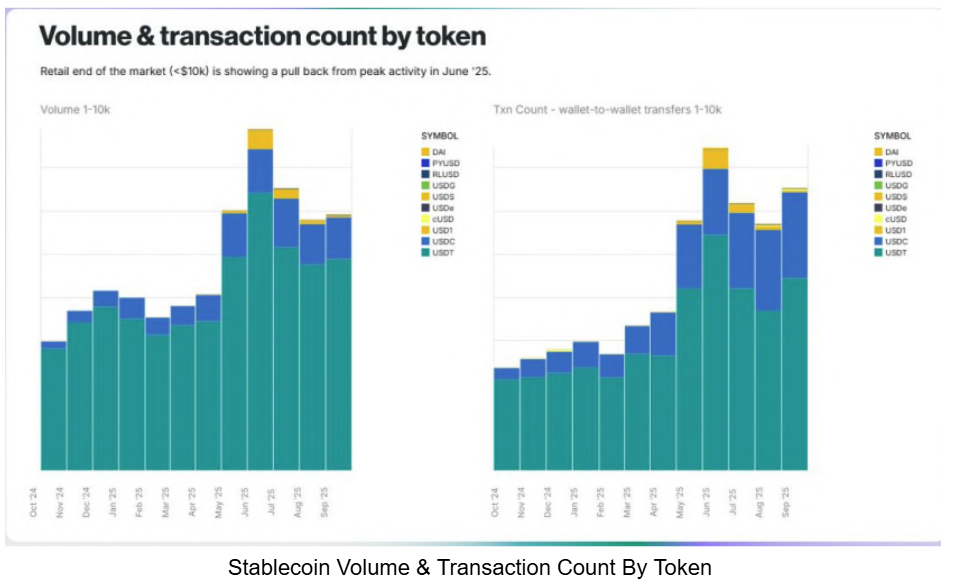Exploring Canadian Watercraft: Tips and Trends
Discover the latest in Canadian watercraft – from Lake Ontario fishing boats to kayaking in the Rockies.
Stablecoins and Gaming: A Trend Worth Its Weight in Pixels
Discover how stablecoins are revolutionizing the gaming world, creating new opportunities and enhancing player experiences like never before!
How Stablecoins are Revolutionizing In-Game Economies
The emergence of stablecoins has brought a new wave of innovation to in-game economies, offering players and developers a reliable means of transacting digital assets. Unlike traditional cryptocurrencies, which can experience significant volatility, stablecoins are pegged to real-world assets, providing much-needed stability. This feature allows gamers to buy, sell, and trade in-game items with confidence, knowing that their investments retain consistent value. As a result, game designers are beginning to integrate these digital currencies into their ecosystems, paving the way for a more cohesive and efficient marketplace.
Furthermore, the use of stablecoins in in-game economies eliminates the need for players to convert their earnings into fiat currency, streamlining transactions and reducing fees. By facilitating cross-border payments without the hassle of traditional banking systems, stablecoins enhance the accessibility of gaming to a global audience. Recent studies have shown that games utilizing stablecoins see higher engagement rates and player retention, underscoring the potential of these digital assets to transform not only the way we play but how we perceive value in virtual environments.

Counter-Strike is a popular first-person shooter game that pits teams of terrorists against counter-terrorists in various objective-based scenarios. Players have the opportunity to strategize, aim, and execute their plan while competing against others globally. If you're interested in enhancing your gaming experience, you might want to check out this betpanda promo code for some exciting bonuses.
The Future of Gaming: Are Stablecoins the Key to Seamless Transactions?
The gaming industry is rapidly evolving, with innovations aimed at creating more immersive experiences for players. One of the most exciting developments on the horizon is the integration of stablecoins into gaming ecosystems. Unlike traditional cryptocurrencies, which can experience significant volatility, stablecoins are pegged to fiat currencies or other assets, providing a more predictable and secure means of transaction. This stability is particularly important for seamless transactions in gaming, where players often engage in real-time purchases of in-game assets, subscriptions, and virtual currencies. By utilizing stablecoins, developers can enhance user trust and satisfaction, fostering a more engaging gaming environment.
Furthermore, the adoption of stablecoins could streamline cross-border transactions, allowing players from different regions to participate in games without the hassles of currency conversion and international fees. As the gaming community becomes more globalized, the need for efficient payment methods is paramount. With the infrastructure for blockchain technology becoming more robust, the potential for gaming companies to implement stablecoins as a standard payment option is becoming increasingly realistic. In conclusion, the future of gaming looks promising with stablecoins at the forefront, potentially paving the way for unprecedented ease and flexibility in seamless transactions.
Exploring the Benefits and Risks of Using Stablecoins in Gaming
Exploring the Benefits of Stablecoins in Gaming has become an essential topic as the gaming industry continues to evolve. One of the primary advantages of stablecoins is their ability to provide price stability, allowing players to engage in transactions without the volatility typically associated with cryptocurrencies. This enables smoother experiences when purchasing in-game items or making transactions across different gaming platforms. Additionally, stablecoins can facilitate cross-border payments, eliminating hefty transaction fees and providing accessibility to a global audience.
However, there are risks associated with the implementation of stablecoins in gaming. One major concern is the regulatory landscape surrounding cryptocurrencies, which varies significantly from one jurisdiction to another. Players and developers alike must navigate these complexities to ensure compliance. Furthermore, the potential for market manipulation and security breaches poses risks for both users and platforms, possibly undermining the trust that players place in stablecoin transactions. Therefore, while stablecoins present comprehensive benefits for the gaming ecosystem, it is critical to weigh these advantages against their inherent risks.